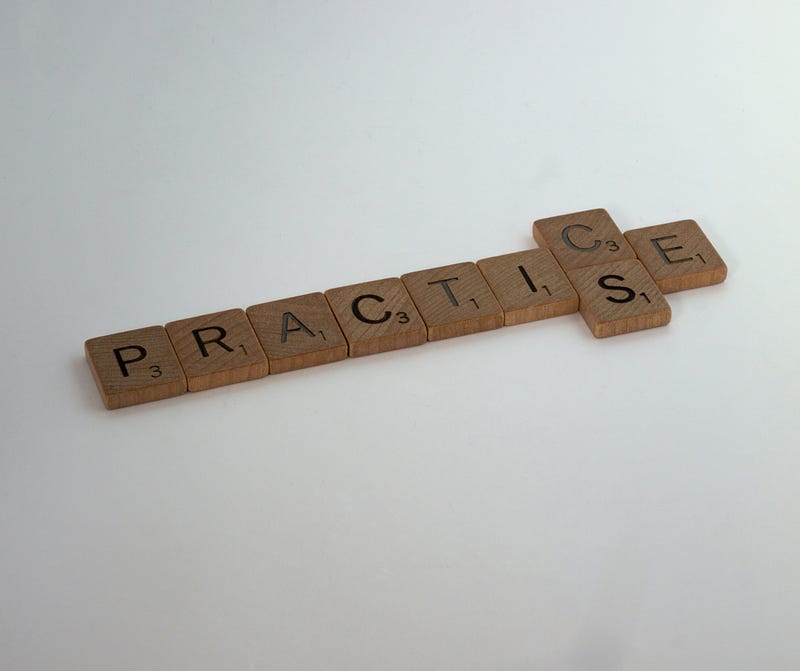Mastering Self-Control: Shape Your Life Instead of Being Shaped
Written on
Chapter 1: The Power of Self-Control
Imagine focusing on just one skill: the ability to enjoy a single cookie instead of devouring the whole pack. Picture resisting the urge to buy yet another pair of jeans when your closet is already overflowing. Envision holding back from binge-watching an entire series in one sitting. This remarkable ability is self-control, or self-discipline.
Self-discipline is a defining trait that distinguishes many successful individuals from the rest. If you enjoy reading biographies, you’ve likely encountered stories of extraordinary people whose experiences often overshadow our own. More often than not, it is their self-discipline that shapes their destinies.
If societal norms and laws didn't impose limitations, would you create your own? How many of us would truly behave if there were no cultural constraints? Would you ignore a 30 km/h speed limit if there were no cameras? Or take something from a store without fear of consequences? Without societal rules, chaos could easily ensue.
In many areas of life, we lack imposed constraints, and it shows. From eating habits to shopping behaviors and time spent on social media, most of us wrestle with at least one of these challenges. I, too, find it hard to resist the temptation of endless scrolling or snacking without limits. Without my self-imposed boundaries, I might be glued to a screen while snacking mindlessly.
Self-Discipline: A Necessary Deprivation
Daily routines, like brushing your teeth, exemplify self-discipline, as most of us would prefer not to deal with bad breath. However, we often struggle with self-discipline when it involves unpleasant tasks or sacrifices. Discipline often requires giving up certain pleasures; the benefits of our restraint might not be evident until much later.
The money saved from unnecessary purchases, the cake not eaten, and the time spent on our health are rarely appreciated in the moment. In the ongoing battle between indulgence and self-restraint, the allure of pleasure can be difficult to resist.
Self-Discipline and Constructing Good Habits
Establishing good habits works hand in hand with self-discipline. Even the smallest actions, when practiced consistently, accumulate into significant results over time. Progress requires repetition and dedication.
Having lived abroad, I was concerned about losing my Spanish language skills upon returning home. Just like any other skill, if you don’t practice, you lose it. To maintain my language proficiency, I adopted the habit of listening to Spanish radio while showering every morning. While it’s not equivalent to immersion, it helps me retain what I’ve learned.

Practice Makes Perfect
Another effective habit I’ve developed is online grocery shopping. This method helps me avoid stocking up on unhealthy foods. Experience has taught me that a trip to the store often leads to impulsive purchases. Shopping online limits temptation, as I tend not to crave what I don’t see. This discipline not only benefits my health but also my budget.
Exercise also necessitates self-discipline. Many people, driven by New Year’s resolutions, commit to gym memberships but abandon them shortly after.
Rewarding Yourself to Enhance Discipline
Before the pandemic, I regularly visited the gym three to four times a week. What kept me motivated wasn’t just the exercise itself, but the sauna that followed. The workout was a means to an end; the sauna was my reward.
When immediate gratification is absent in our self-discipline efforts, focusing on long-term goals or rewards can be beneficial. Maybe you have a favorite outfit that you wish to fit into again—this can motivate you to maintain moderation in your diet. Or perhaps saving for a dream vacation can discourage impulse buying.
Creating Systems for Restraint
To manage my spending, I established what I call a "pocket money" account. My bills come out of a primary account, while a designated amount is transferred to my spending account. Although not foolproof, this system enhances my awareness of spending habits.
If I notice my weight increasing, I revert to my trusted KETO diet and meticulously record my daily weight, food intake, and fasting periods. Skipping the documentation would make it less effective, and accountability helps me stay on track.
Genetic Influences on Self-Discipline
Some individuals seem to possess a natural inclination toward self-discipline, while others struggle, potentially due to genetic predispositions toward addictive behaviors or obesity. However, using genetics as an excuse is ultimately a way to avoid responsibility. Numerous individuals have achieved greatness through discipline, in spite of their genetic backgrounds.
For instance, my maternal relatives struggle with weight, yet one aunt has triumphed through self-control and healthy habits. She moderates her diet and is actively involved in a personal training community, which provides structure and accountability. Such frameworks can be crucial for those grappling with self-discipline.
Reflecting on my own experiences, I recognize that I could easily fall into unhealthy habits without proper restraint. When I first attended college, I gained 6 kg in one semester—not an insignificant amount for my 52 kg frame—due to the lack of discipline and the distractions of newfound freedom.
The Impact of Environment on Discipline
Our surroundings significantly influence our self-discipline. The places we frequent and the company we keep can either encourage or undermine our efforts.
Self-discipline may pose challenges, but consider where you would be without it. How could increased self-control enhance your life? Imagine having more time, extra funds, improved productivity, or stronger relationships.
If you can master this one element—most of the time—you can take charge of your life rather than let it dictate your actions.
For practical steps toward a healthier and happier lifestyle, consider signing up for my newsletter.
Chapter 2: Practical Steps to Discipline
Video Summary: Bill Burnett shares five essential steps for designing a fulfilling life at TEDxStanford, emphasizing the importance of intentionality and planning.
Chapter 3: Creative Solutions to Home Challenges
Video Summary: This video presents five simple yet effective strategies for creating epic coins at home, showcasing creativity and resourcefulness.